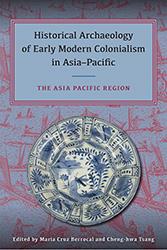Search Results for 'Florida on Horseback'
1926 results for 'Florida on Horseback'
Please note that while you may order forthcoming books at any time, they will not be available for shipment until shortly before publication date
In the first book to focus on the activism of Black women during Cuba’s prerevolutionary period, Takkara Brunson discusses how these women battled exclusion on multiple fronts but played an important role in forging a modern democracy.
The chaotic years after the Civil War are often seen as a time of uniquely American idealism—a revolutionary attempt to rebuild the nation that paved the way for the civil rights movement of the twentieth century. But Adam Fairclough rejects this prevailing view, challenging prominent historians such as Eric Foner and James McPherson. He argues that Reconstruction was, quite simply, a disaster and that the civil rights movement triumphed despite it, not because of it.
Packed with archaeological and historical evidence from both land and underwater sites, impressive in geographical scope, and featuring perspectives of scholars from many different countries and traditions, these volumes illuminate the often misunderstood nature of early colonialism in Asia-Pacific.
This book tells the story of the steamship Robert J. Walker, an early coastal survey ship for the agency that would later become the National Oceanic and Atmospheric Administration (NOAA), that sank with loss of 21 crew off the coast of New Jersey in 1860. The wreck was a frequent stop for divers and anglers before it was identified by a team of researchers in 2013. Here, leaders in the documentation efforts describe the history of the ship and the archaeology of the shipwreck, emphasizing the collaborative community participation that made the project successful.
Using extensive field research, Alconini explores the modes of direct contact between the Inkas and eastern tropical Lowland populations, a situation often overlooked in studies of the area. Combining both regional- and household-level perspectives, she explores the empire's impact on local settlements as well as on domestic economy, production, cultural materials, and labor organization.
Looking closely at nineteenth-century texts and twentieth-century novels written by African American women about antebellum America, Resistance Reimagined highlights examples of black women’s activism within a society that spoke so much of freedom but granted it so selectively.











